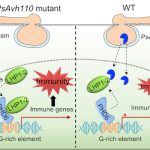Grant Writing for Plant Biologists
Writing grant proposals is an important part of most scientific careers and yet is also a task for which many early career scientists feel unprepared. Journal articles, in contrast, may write more naturally, having become familiar with their structure and conventions over years of regular reading. But most emerging scientists will have little reason to read grant proposals during their education – and to write one is an art of its own, requiring not only a researcher’s subject area expertise, but also a certain narrative style and advocacy for their proposed project’s merits that is difficult to teach.
As with writing journal articles, the best way to learn is often by example. Of course, a grant’s requirements will vary by the field and funding agency; when possible, reading past grants submitted for a researcher’s specific opportunity of interest can be particularly helpful. In any case, though, reading well-crafted grants can help researchers become familiar with the general content, organization, appropriate level of detail, and writing style of a typical proposal, helping them to develop an intuitive sense of how to promote and justify their ideas to a potential funder.
Likely, the best source of relevant examples will be colleagues within a researcher’s lab, department, or organization. In addition, some researchers have generously shared their proposals online in hopes of helping others and demystifying the funding application process. This is the mission of the website Open Grants, a searchable, open repository of funding proposals organized by a group at the University of Florida and supported by the Institute of Museum and Library Services and the Moore Foundation. Such resources may be especially valuable for early career scientists who have more limited professional networks or institutional resources.
For convenience, the below is a compilation of grant proposals from the Open Grants collection relevant to plant biology and related topics.
Once accustomed to these general expectations, scientists may feel more comfortable crafting their own proposals, supplementing with feedback from peers and tips from grant writing books or articles. Of course, the grant selection process is complex, and there is no formula that can guarantee funding. Certainly, though, sharing successes and failures can help emerging scientists to learn the conventions of the application process and become better advocates for their work.
______________________________________________
About the Author:
Annelise Vieira is an NSF Graduate Research Fellow at Cornell University and a 2023 Plantae Fellow. She has a penchant for writing, technical communication, and content creation. Her past and present research works have addressed questions in genetics, biochemistry, and physiology of horticultural crops.



